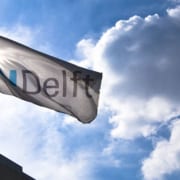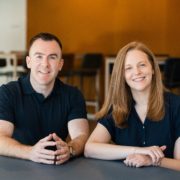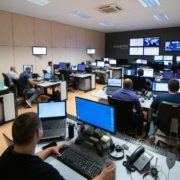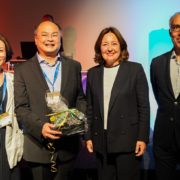TU Delft and partners to create superhighway for digital data
TU Delft researchers and 20 partners are developing reliable and safe wireless broadband connections using light instead of radio waves. They anticipate that this technology will allow us to securely send and process digital data at high speeds, with low latency. For this research project, the team has been awarded €4.1 million from the Dutch Research Council’s (NWO) Perspectief programme. TU Delft is also participating in the other five consortia that received Perspectief funding.
Superhighway for digital data
Optical Wireless Superhighways: Free photons (at home and in space): FREE
Information is the lifeblood of today’s digital society. The amount of data, and the use of that data, has increased exponentially over the last 50 years. However, traditional technologies used to distribute data, from Wi-Fi in our homes to satellite communications, have already reached or will soon be reaching their limit in terms of capacity. There is a growing need for a new and unifying paradigm for wireless connectivity. As part of the FREE consortium, 21 partners have joined forces to develop new solutions that use light instead of radio waves (which is what the 5G network is based on, for example) to create reliable and secure wireless broadband connections.
The consortium is developing the technology to ultimately enable a ‘network of networks’, in which satellite communications are seamlessly integrated with ground-based networks to provide satellite-to-satellite Network Functions Virtualisation (NFV) and Software-Defined Networking (SDN). This simplified integration between terrestrial and satellite networks will open up new opportunities for the Internet of Things (IOT), as well as for more accurate weather forecasting, for example. The consortium anticipates that the huge amount of available bandwidth, the inherent security, the limited latency and license-free operation will result in a 10- to 100-fold increase in wireless connectivity.
“I am extremely pleased with the fact that our Optical Wireless Superhighways address applications at all length scales, from meter distances for indoor applications to thousands of kilometres in space, bringing together both the terrestrial and the space domains”. -Prof. Dr. Eberhard Gill, programme leader
Six consortia in the Netherlands
TU Delft is participating in the six consortia that have been awarded a Perspectief grant. The Perspectief programme is characterised in particular by the composition of the consortia: all the key players required to devise and develop practical solutions for real-life situations participate in these programmes. For example, in order to create a new paradigm for wireless communication that can be used safely and efficiently anytime, anywhere, the FREE consortium’s academic team collaborates with companies from, for example, the aerospace industry and the high-end technology industry. The collaboration between the universities (the technical universities TU Delft, Eindhoven University of Technology and Twente University, as well as Leiden University and Vrije Universiteit Amsterdam) connects different worlds – from satellites in space to users at home.
“Our long-term cooperation enables us to work with large and high-impact consortia such as these. By tapping into each other’s added value, we are able to move forward both together and individually”. -Prof. Dr. Henri Werij, Dean of the Faculty of Aerospace Engineering at TU Delft.
This article originates from: TU Delft



